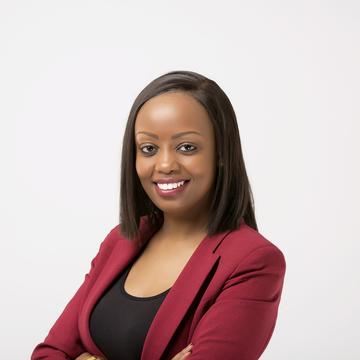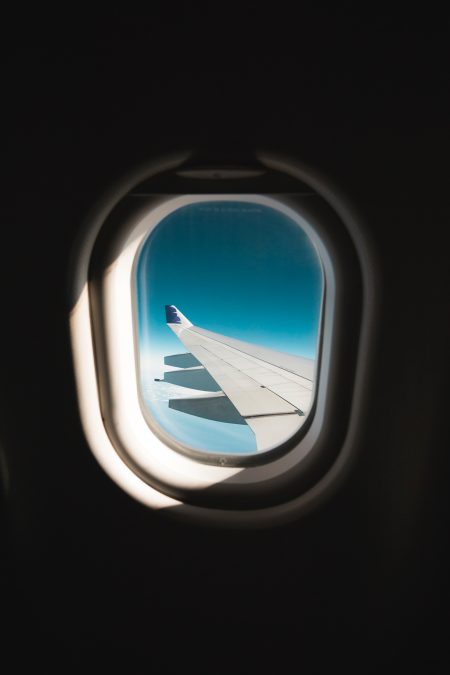A Tale of Two Viruses

A Tale of Two Viruses
Dr. Diana Esther Wangari is a current 2019-20 Skoll Scholar and Oxford MBA. She is the co-founder of last mile health venture, Checkups Medical Centre in Kenya where she dedicates her work to treating those who need it most. Read more about Diana’s experience as a health professional during two viruses.
It started when I was in the queue at immigration. This was at Brussels Airport. The elegant lady looked at me, almost apologetically, then whispered to her partner. He turned and looked, decidedly less friendly, pulled her towards him and they moved forward.
They didn’t have to tell me what they were thinking. I was the only African in this queue, and it was at the height of the 2014 Ebola crisis in West Africa: they had no way of knowing what country I had come from.
And by then, global news headlines had already proclaimed the ultimate horror: a man infected with Ebola had travelled all the way to the USA, without his deadly infection being detected.
Worse still, he had interacted with various members of his friends and family – over and above his fellow passengers on the flights to the US, and the airline crew – before the truth had emerged that he had Ebola. Total panic had ensued in America, and demands were made for all flights to the US from West Africa (if not all of Africa) to be suspended immediately.
I knew they were looking at me and thinking just one thing…Ebola.
It was a time of global hysteria over this terrifying disease, and thus not really the best time for an African to be flying to Europe or North America.
So why was I there? At that airport? In that immigration queue?
I had travelled from Nairobi, Kenya to Brussels, Belgium.
My final destination was the Institute of Tropical Medicine (ITM) Antwerp, the very institution where Ebola had been discovered by Dr. Peter Piot back in 1976.
You could argue that this feeling of being dehumanised – of being seen essentially as a potential carrier of a deadly and highly contagious virus – was all in my head. But I was to have an even more disturbing encounter in the train on my way from Brussels to Antwerp.
On the train where I was seated next to the window, a child came and sat next to me only for the mother to promptly grab her hand and swiftly move with her to a distant couch. The gentleman seated opposite, noticing my facial reaction, leaned in and started speaking in French.
Now while I do know some French, it certainly didn’t prepare me for the verbal onslaught of incomprehensible French that poured forth, and so I stared at the gentleman and said, “En anglais s’il vous plait.”
“Aha, so you are not from a Francophone country,” said the gentleman, “I was simply apologizing on behalf of the lady as it is ignorance and now, I see that you are not from West Africa.”
In the conversation that followed, I explained to the kind gentleman that I was actually from Kenya. And that despite there being no cases of Ebola in Kenya, the impact of the Ebola outbreak on sectors of our economy would be notable.
Our parliament had officially decreed that Kenya Airways, our national carrier, suspend all its flights to West Africa for fear that one of the many transit passengers from West Africa would bring the dreaded disease to Kenya.
The Kenya Airways management argued in vain that they were taking precautions against any such possibility; that there were even European airlines still flying to the West African nations affected; and that flights from West Africa to Dubai or China, via the Nairobi hub, were a key profit centre for Kenya Airways.
But the parliamentarians would have none of it. One MP even declared that the next flight from West Africa landing in Nairobi, would find him – along with his supporters – lying on the runway to prevent it from landing “if that is what it would take to secure the lives of innocent Kenyans, threatened by Ebola”.
But I digress. Bruno (for that was his name) told me of his dream to go on Safari in Kenya and was considering going to the Maasai Mara to witness the annual wildebeest migration, famously, “The eighth wonder of the world”.
I was smiling and laughing by the time I got off the train. But that night – my first night at ITM – I cried. I just could not help it.
However, that nasty experience of being an African travelling in Europe at the time of Ebola was quickly forgotten as I settled into ITM, as every day I got to interact with scientists who were travelling regularly to Liberia at the very heart of the outbreak: the kind of courageous and dedicated biomedical researchers that the world has learned to think of as heroes, since the COVID-19 pandemic descended on us all.

And speaking of COVID-19, six years after the incident at Brussels Airport, I found myself in another queue. This time at the Jomo Kenyatta International Airport in Nairobi.
After completing the re-entry formalities, getting into the Uber, I noticed the undue speed with which the driver picked up my bags and flung them into the boot.
And then, once I was seated in the back of his car, ever so casually, he asked, “Where are you flying in from, my sister?”
“London,” I answered.
And I could hear the “Oh” and then a moment of silence, before he continued in a rather accusing tone of voice, “Kenya just confirmed its first case of “corona” yesterday. It was a lady coming from London as well.”
I got the impression that he felt I should have volunteered that piece of information about having flown in from London before I got into his cab; given him the opportunity to decline to drive me home.
An uneasy silence followed.
“Are you worried?” I asked despite the fact that I was in the back seat with ample space between. He quickly shook his head but did not say anything.
We drove in silence. But it was unnerving to see the occasional glances he threw back – taking his eyes away from the road for a second or two – as if he was checking for some indication that he was at risk: that a fine mist of coronavirus might be floating towards him, brought back from a contaminated London, to infect innocent people in Nairobi.
On arrival, I volunteered to take out my own bags. The driver seemed relieved.
Thanks to that great Kenyan innovation, the ubiquitous Mpesa mobile phone money transfer system, I was able to pay him without having to hand over to him, what he would no doubt have considered to be “corona”-infected cash.
There was a time when I would have been very tempted to scream at him that I refused to be treated like a leper in my own country.
But I had seen much more of the world over the past six years. I understood fear. I just paid him and thanked him. I even gave him a tip.
And that night, I did not cry.
For you see, I had learnt over the course of time, life is not black and white. I was now an MBA student at Oxford University’s Saïd Business School and I had the sinking feeling that our MBA experience, just like the rest of the world, was not going to be the same. It has been two months and I was right.
Perhaps the hardest part was being torn between answering the call to aid my country as a health professional and continuing down the path I had already embarked on at Oxford. And some days, I do find myself volunteering in the hospital because the little we can do, we must do.
And as we continue with our classes online and I think back to the classmates, the faculty, the friends and the family I made, I know it has not been easy.
I will tell you what Bruno told me as we left the train that autumn evening at Antwerpen-Central, “Take care of yourself my dear. Don’t forget to smile. It shall pass”.
This too shall pass.



